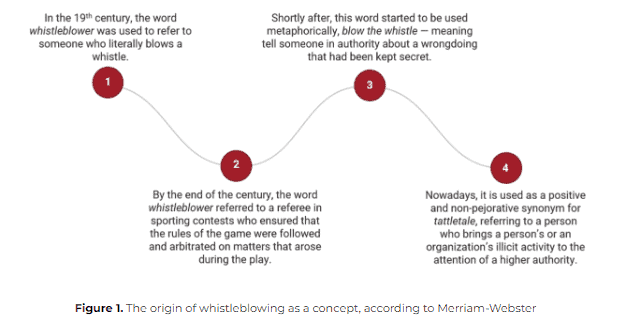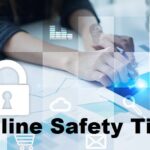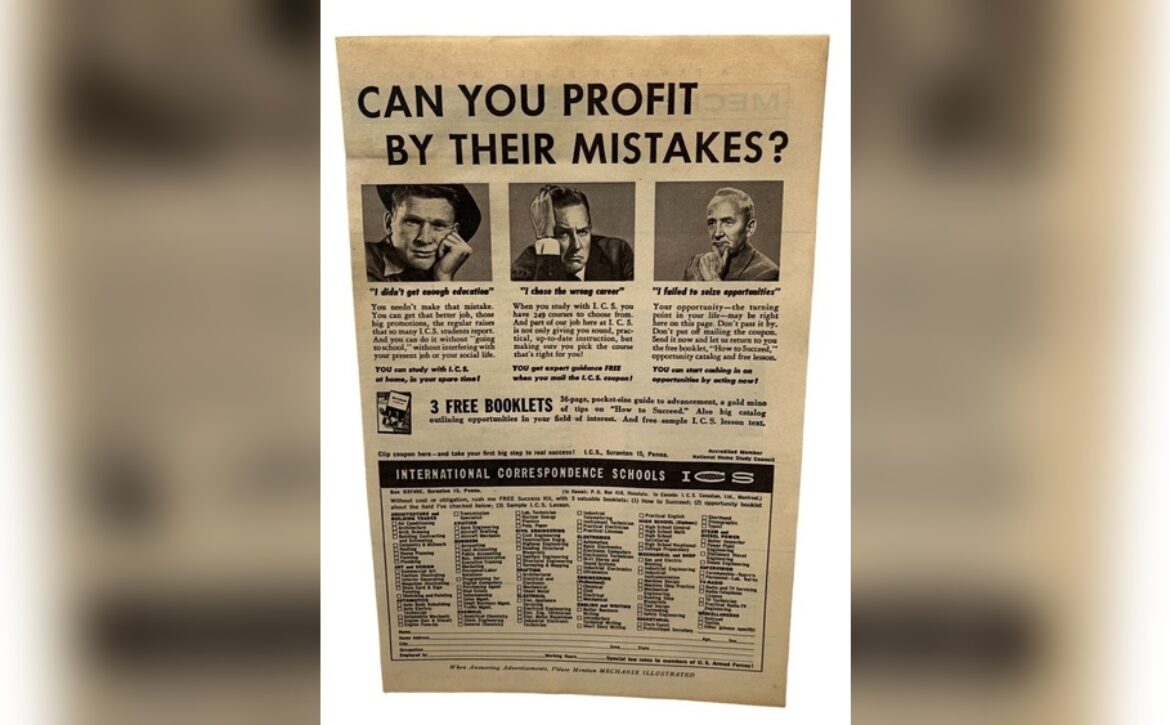
How to Become a Whistleblowing Training Expert
Have you ever wondered about the power of a single voice? Imagine having the courage to speak up when something isn’t right, and knowing exactly how to do it effectively.
Whistleblowing is a critical skill in today’s workplace, offering a path to integrity and transparency. But how do you become proficient in it? This article is your roadmap to mastering whistleblowing training. You’ll discover step-by-step techniques, insider tips, and the secrets to becoming an influential whistleblower.
As you read on, you’ll uncover how this training can not only protect your organization but also empower you to make a meaningful impact. Get ready to transform your voice into a tool for positive change.
Whistleblowing Fundamentals
Discover essential steps to become a whistleblowing trainer. Learn about ethical guidelines and legal protections. Understand how to empower others in safeguarding integrity and transparency in various organizations.
Whistleblowing is a crucial aspect of maintaining transparency and integrity within organizations. Understanding the fundamentals of whistleblowing can empower you to act responsibly when faced with unethical practices. This guide will help you grasp the core concepts and legal frameworks that form the foundation of whistleblowing training.
Key Concepts
Whistleblowing isn’t just about reporting wrongdoings; it’s about fostering a culture of accountability. It involves recognizing situations where ethical lines are crossed and deciding to take action. Think about a time when you faced a moral dilemma—what guided your decision? The role of a whistleblower is not just reserved for major scandals. Everyday actions, such as reporting a colleague’s misuse of company resources, can also qualify. Understanding these smaller, day-to-day scenarios is essential in comprehending the bigger picture. Trust is at the heart of whistleblowing. You need to feel confident that your concerns will be addressed without fear of retaliation. This trust is built on knowing the policies and procedures in place to protect you.
Legal Framework
Navigating the legal landscape of whistleblowing can be daunting, but it’s crucial for your protection. Laws vary by country and industry, offering different levels of protection to whistleblowers. Are you familiar with the specific legal protections available to you in your field? In the United States, the Whistleblower Protection Act is a key piece of legislation. It safeguards federal employees who report misconduct. Understanding such laws can encourage you to speak up, knowing your rights are protected. Sometimes, the fear of legal consequences can deter potential whistleblowers. It’s essential to know that many laws also protect against retaliation, ensuring you won’t face backlash for your honesty. Familiarize yourself with these legal safeguards to feel empowered in your role. Educating yourself about whistleblowing fundamentals equips you to handle ethical challenges with confidence. By understanding the key concepts and legal frameworks, you’re not just protecting yourself—you’re contributing to a culture of integrity. How will you apply this knowledge in your daily work life?
Skills For Whistleblowing Training
Learning the skills for whistleblowing training is a journey that can empower you and safeguard others. These skills not only help in reporting unethical practices but also ensure that you do so effectively and legally. Each skill is like a building block, forming the foundation of a whistleblower’s confidence and competency. Let’s delve into the essential skills you need to become proficient in whistleblowing training.
Communication Skills
Effective communication is at the heart of whistleblowing. You must convey your concerns clearly and concisely. Imagine being in a situation where you need to report an issue; your ability to articulate the problem can make or break the impact of your report.
Enhance your communication skills by practicing active listening and clear writing. Consider joining workshops or groups that focus on public speaking. This will help you express your thoughts without ambiguity.
Legal Acumen
Understanding legal frameworks is crucial. You should be aware of the laws surrounding whistleblowing to protect yourself and ensure your reports are taken seriously. Legal knowledge acts as your shield against retaliation.
Invest time in learning about whistleblower protection laws. Consult with legal professionals or attend seminars that cover these topics. This knowledge will empower you to make informed decisions.
Ethical Decision Making
Ethical decision making is a cornerstone of whistleblowing. Your actions should reflect integrity and honesty. Think about what drives you to take a stand against wrongdoing; it’s your moral compass guiding you.
Strengthen your ethical reasoning by reflecting on past experiences where your principles were tested. Engage in discussions with mentors or peers who value ethical behavior. This will help you navigate complex situations with confidence.
Are you ready to develop these skills and make a difference? Reflect on your current abilities and consider how you can grow in these areas. Becoming skilled in whistleblowing is not just about protecting yourself; it’s about creating a safer environment for everyone.
Developing Training Materials
Creating effective training materials is crucial for whistleblowing education. These materials guide participants through the learning process. They ensure understanding and retention of key concepts. Well-designed materials enhance learning experiences. They make complex topics more approachable.
Curriculum Design
Curriculum design sets the foundation for successful training. Begin by identifying key whistleblowing topics. Include laws, procedures, and ethical considerations. Structure the content logically. Start with basic concepts and gradually introduce advanced topics. Include real-world examples for clarity. This helps learners relate theory to practice.
Interactive Learning Tools
Interactive tools engage learners effectively. Use quizzes to test knowledge. Include case studies for practical insights. Simulations can demonstrate real-life scenarios. Encourage discussions to foster critical thinking. These tools make learning active. They promote deeper understanding.

Building Experience
Building experience as a whistleblowing trainer is crucial. It’s not just about understanding the theory; you need hands-on skills to guide others effectively. Your ability to lead with confidence comes from practical experiences that shape your approach and understanding.
Case Studies
Case studies are invaluable tools for gaining insights into real-world scenarios. They offer a glimpse into the challenges whistleblowers face and the outcomes of their actions. By analyzing these cases, you learn what works and what doesn’t.
Consider diving into documented whistleblowing events. Examine the steps taken and the impact these actions had. You might find patterns or strategies that could be applied in training sessions. This analytical approach helps you build a robust knowledge base.
Reflect on your own experiences or those shared by others. Have you ever witnessed a whistleblowing incident? What was the fallout? Sharing these stories adds depth to your training, making it relatable and impactful for your audience.
Practical Exercises
Practical exercises are essential in translating theory into action. They allow you to simulate real-world scenarios and prepare for potential challenges. This hands-on approach ensures that your training is not just informative but also transformative.
Set up mock whistleblowing situations. Encourage your participants to navigate these scenarios, considering the ethical and legal implications. This exercise builds critical thinking and decision-making skills.
Engage your participants in role-playing activities. Have them take on different roles, such as the whistleblower, the accused, or the investigator. This immersive experience fosters empathy and understanding, crucial elements in effective whistleblowing training.
What strategies have you found effective in your practical exercises? Sharing your successes and struggles can inspire others to refine their approaches. Building experience is about continual learning and adaptation.
Certification And Credentials
When you’re on the path to becoming a whistleblowing trainer, certifications and credentials are your golden tickets. They not only validate your expertise but also enhance your credibility in the eyes of potential employers or clients. But how do you choose the right program or organization to align with your career goals?
Accredited Programs
Choosing an accredited program is crucial. It ensures the quality and recognition of your training. Look for programs that are recognized by industry leaders and have a robust curriculum.
Consider the program’s focus. Does it cover all necessary aspects like legal frameworks, ethical considerations, and communication strategies? A comprehensive program equips you with the tools you need to effectively train others.
Check if the program offers practical experiences. Engaging in real-world scenarios or case studies can significantly enhance your learning. Practical experience bridges the gap between theory and practice, making you a more effective trainer.
Professional Organizations
Joining a professional organization can be a game-changer for your career. These organizations offer resources, networking opportunities, and ongoing education. They keep you updated on the latest trends and regulations in whistleblowing.
Being a member of such organizations can also boost your credibility. It shows your commitment to maintaining high standards and staying informed. But how do you choose the right one?
Research organizations that align with your values and career goals. Consider what they offer—like workshops, seminars, or access to a community of experts. Does their mission resonate with your professional aspirations? Choose wisely to maximize your growth and impact.
In the end, your certifications and memberships are more than just lines on a resume. They are stepping stones to becoming a trusted and effective whistleblowing trainer. What steps will you take today to advance your career in this vital field?

Staying Updated
Staying updated is crucial if you want to excel in whistleblowing training. With the constant changes in laws and industry standards, it’s easy to fall behind. Don’t let outdated information hinder your success or your ability to protect those who rely on you.
Latest Legislation
Understanding the latest legislation is essential for effective whistleblowing training. Laws change frequently, and staying informed ensures you provide accurate guidance. Subscribe to legal newsletters that focus on whistleblowing laws.
Engage with online forums where legal professionals discuss new regulations. These platforms often share insights that might not be in mainstream news. Attending webinars hosted by legal experts can offer a deeper understanding of recent legislative changes.
Industry Best Practices
Industry best practices evolve as organizations learn from past whistleblowing cases. Staying updated helps you teach effective strategies for handling disclosures. Join industry-specific groups on social media for real-time updates.
Look for case studies that highlight successful whistleblowing processes. These examples can provide practical insights into what works and what doesn’t. Consider participating in workshops that focus on whistleblowing best practices.
Reflect on a situation where you felt unprepared due to outdated information. How did it affect your ability to guide others? Use that experience to motivate your commitment to staying informed.
Being proactive about updates can make you a more reliable resource. How will you ensure you’re always at the forefront of the latest in whistleblowing training? Your actions today can set the foundation for tomorrow’s success.
Networking Opportunities
Networking opportunities can be a game-changer for anyone looking to dive into whistleblowing training. They not only help you build connections but also provide you with the latest insights and strategies from industry experts. Ever wondered how these networking platforms can enhance your career in whistleblowing? Let’s explore some avenues that can make a significant impact.
Conferences And Workshops
Attending conferences and workshops is a fantastic way to meet industry leaders and fellow trainees. They create a platform for sharing experiences and strategies in whistleblowing.
Consider attending the annual Whistleblower Summit & Film Festival in Washington, D.C. It’s a hub for gaining insights from whistleblowers themselves. Engaging in workshops allows you to learn hands-on techniques and improve your skills.
Imagine yourself at a workshop, practicing real-life scenarios and receiving feedback from seasoned professionals. This firsthand experience can be invaluable as you sharpen your whistleblowing skills.
Online Communities
Online communities are another excellent resource for networking. Platforms like LinkedIn offer groups dedicated to whistleblowing and compliance. Joining these groups allows you to connect with professionals worldwide.
Engage in discussions, share articles, and ask questions. You’ll be surprised at how quickly you can learn from others’ experiences and insights. Online forums can become your go-to place for advice on complex issues.
Have you ever considered starting a discussion thread? It could lead to meaningful interactions and professional relationships. Online communities offer the flexibility to network from anywhere, anytime, making them a convenient option for busy professionals.
Networking isn’t just about collecting business cards or adding connections on social media. It’s about building relationships that can support your growth and provide new opportunities. How will you leverage these networking platforms to enhance your whistleblowing training journey?

Frequently Asked Questions
What Is Whistleblowing Training?
Whistleblowing training educates employees on how to report unethical or illegal activities within an organization. It covers identifying misconduct, understanding reporting processes, and knowing legal protections. This training ensures employees are aware of their rights and responsibilities, promoting a transparent and ethical workplace environment.
It is essential for fostering a culture of accountability.
Why Is Whistleblowing Training Important?
Whistleblowing training is crucial for maintaining ethical standards and compliance within organizations. It empowers employees to report wrongdoing without fear of retaliation. By promoting transparency, it helps prevent fraud, corruption, and misconduct. This training also safeguards the organization’s reputation and ensures adherence to legal and regulatory requirements, fostering trust and integrity.
How Can I Start Whistleblowing Training?
To start whistleblowing training, identify a suitable training provider or program. Look for courses that cover legal aspects, reporting procedures, and case studies. Online platforms, workshops, and seminars are available options. Ensure the training is tailored to your industry and organization.
Implementing comprehensive training helps create an informed and proactive workforce.
What Topics Does Whistleblowing Training Cover?
Whistleblowing training covers various topics, including identifying unethical behavior, understanding legal protections, and reporting mechanisms. It also addresses confidentiality issues and how to handle retaliation. Case studies and real-life examples are often included to provide practical insights. This comprehensive approach ensures employees are well-prepared to address potential misconduct effectively.
Conclusion
Becoming a whistleblowing trainer is a rewarding journey. You help protect truth. Start by gaining knowledge and skills in this field. Practice active listening and clear communication. Build trust with your trainees. Stay updated with laws and policies. Use real-life examples to teach.
Encourage open discussions in training sessions. Always remain ethical and objective. Your role can make workplaces safer. It empowers others to speak up. With dedication, you can make a difference. Be the guide who inspires change. Your efforts can create a culture of integrity.
Keep learning, keep teaching, and continue inspiring future whistleblowers.





